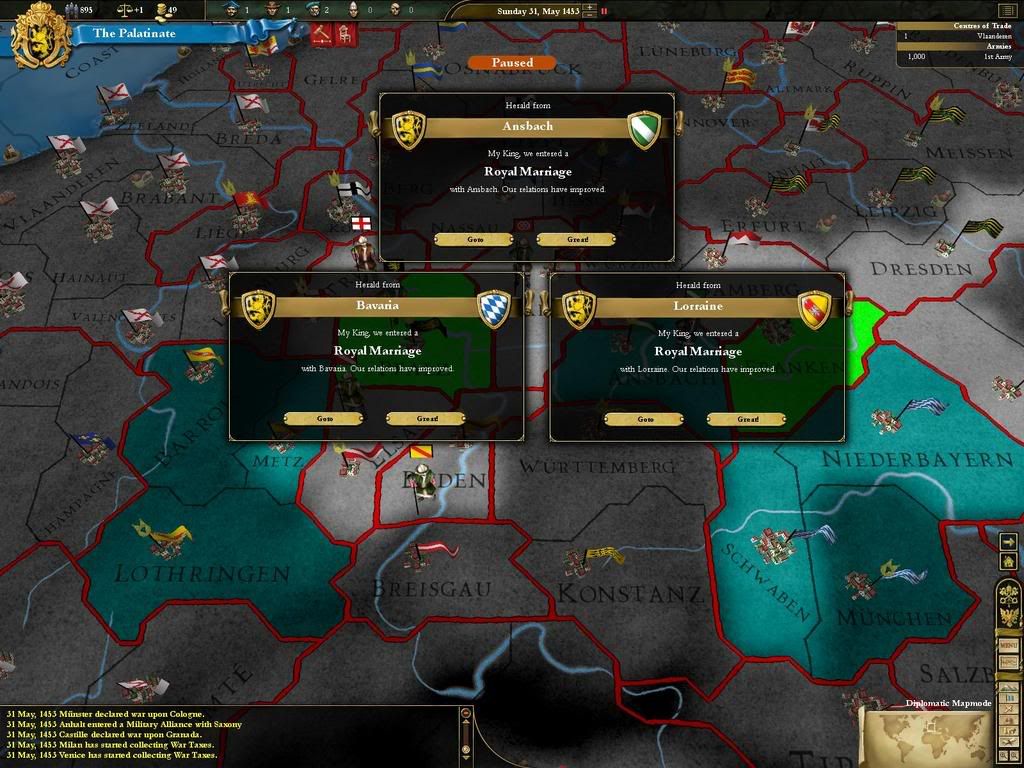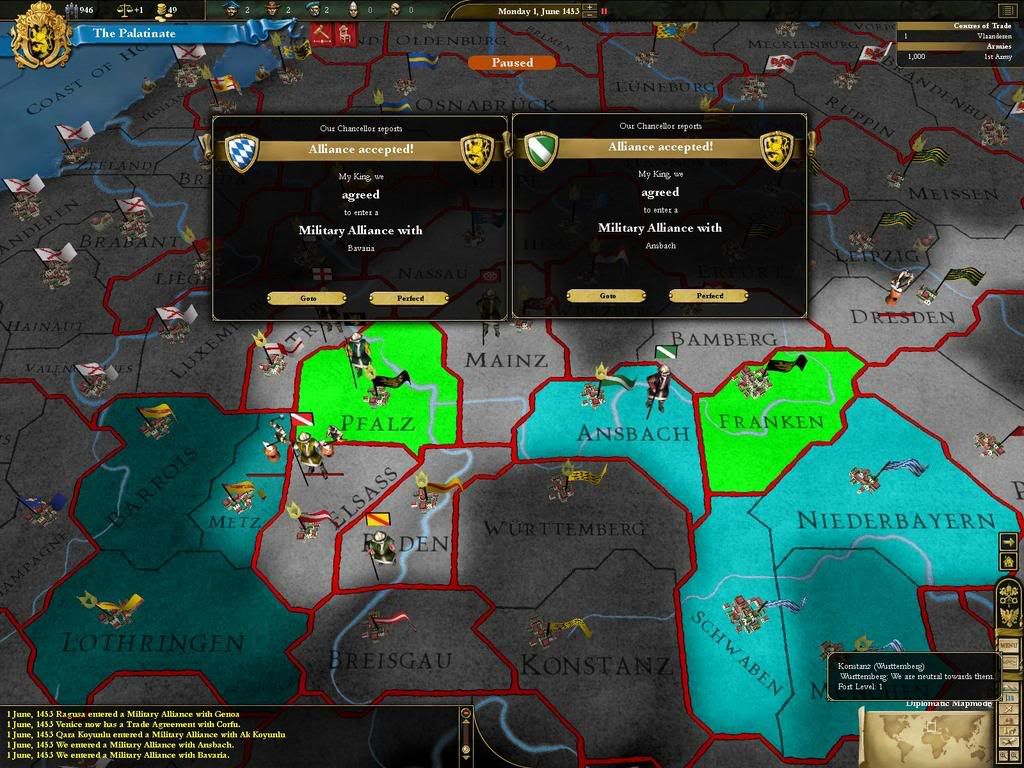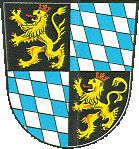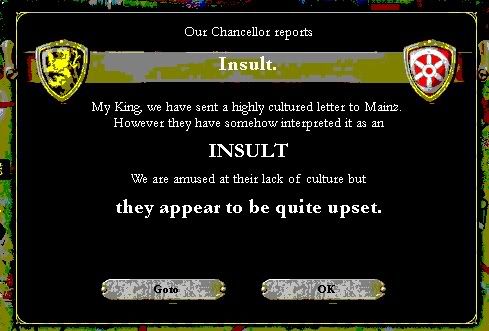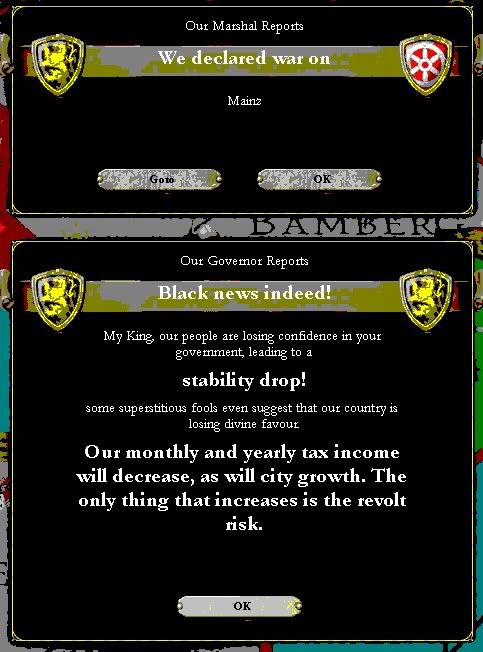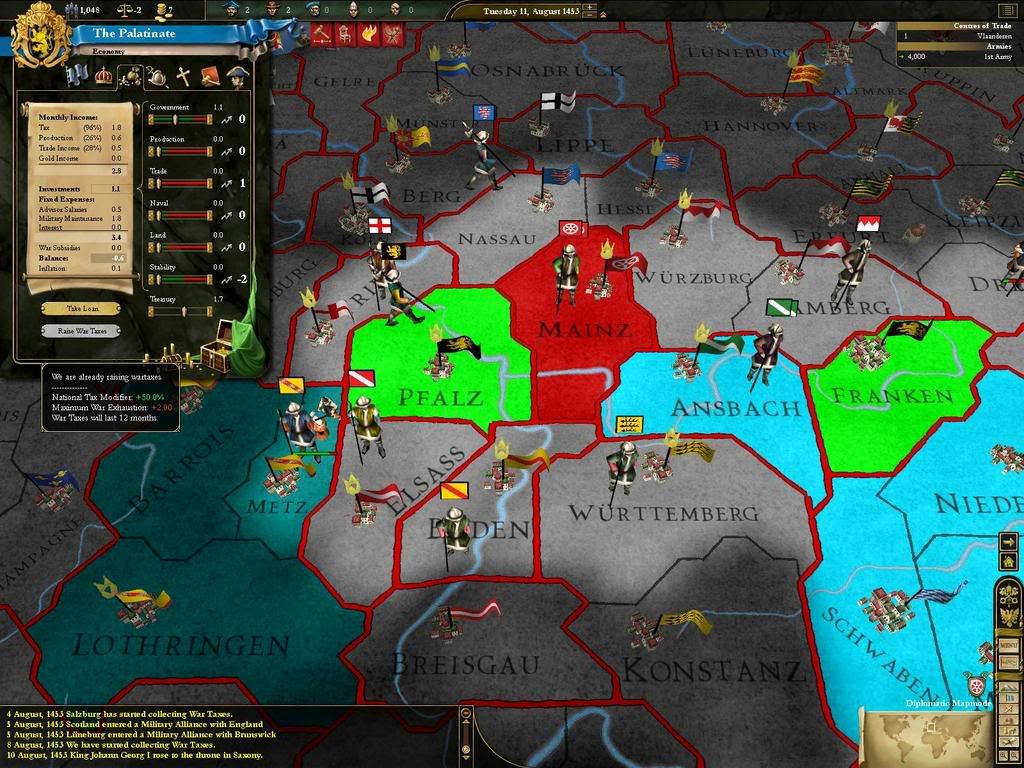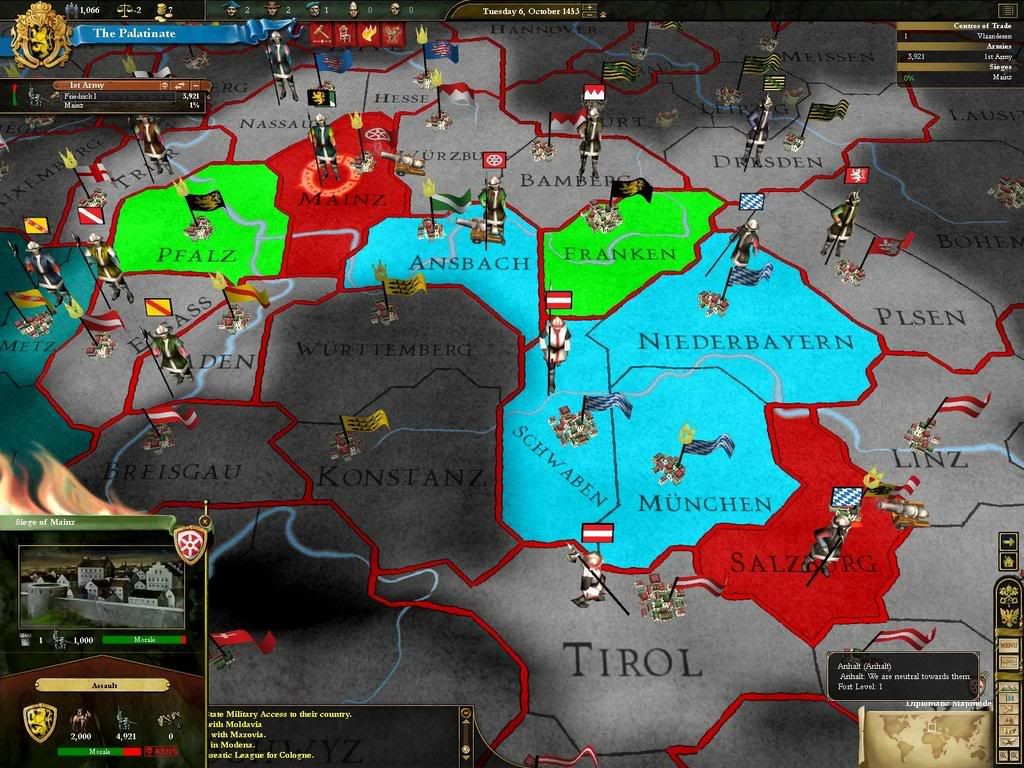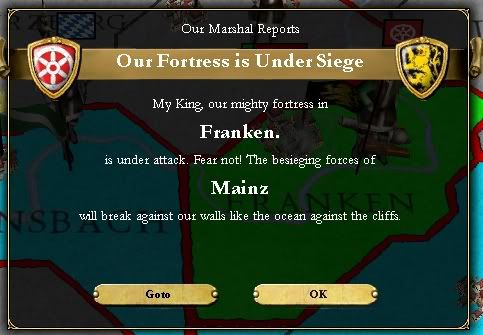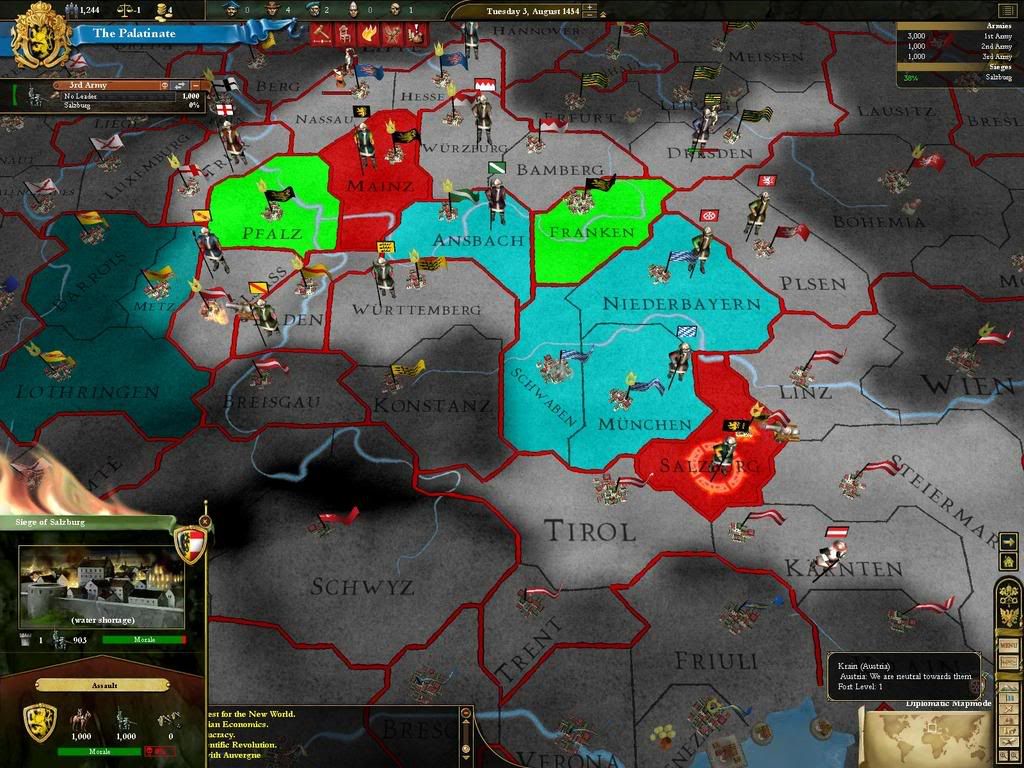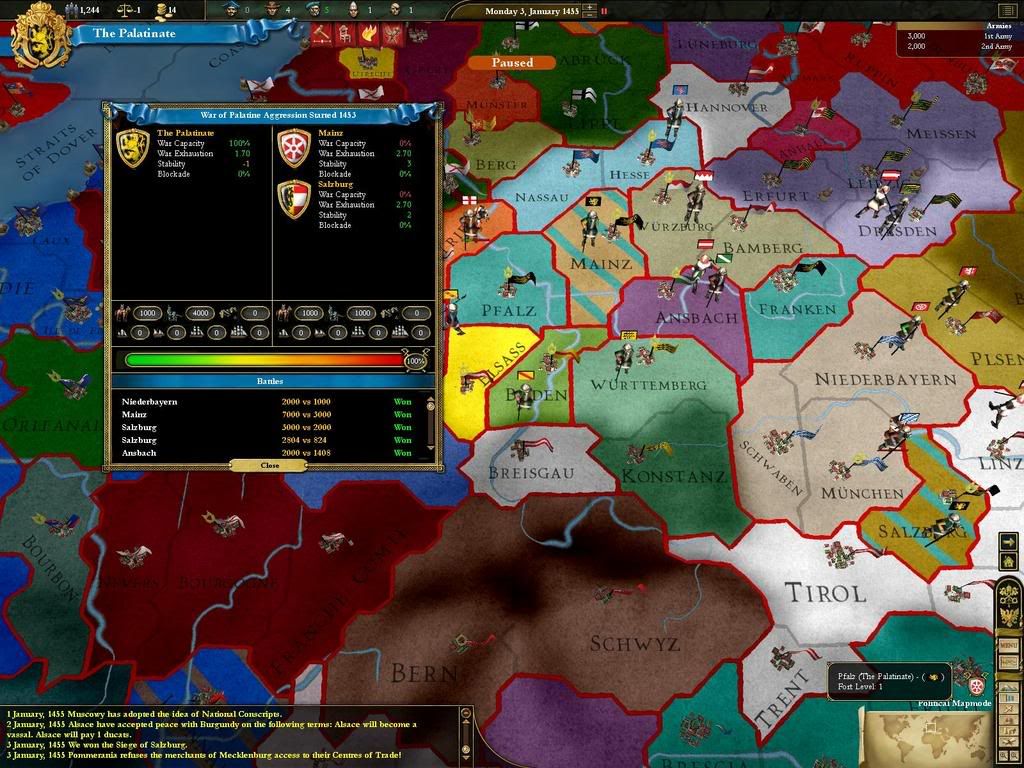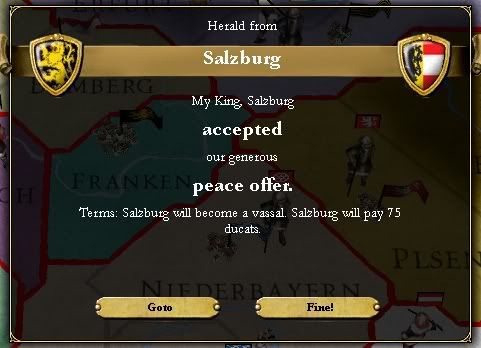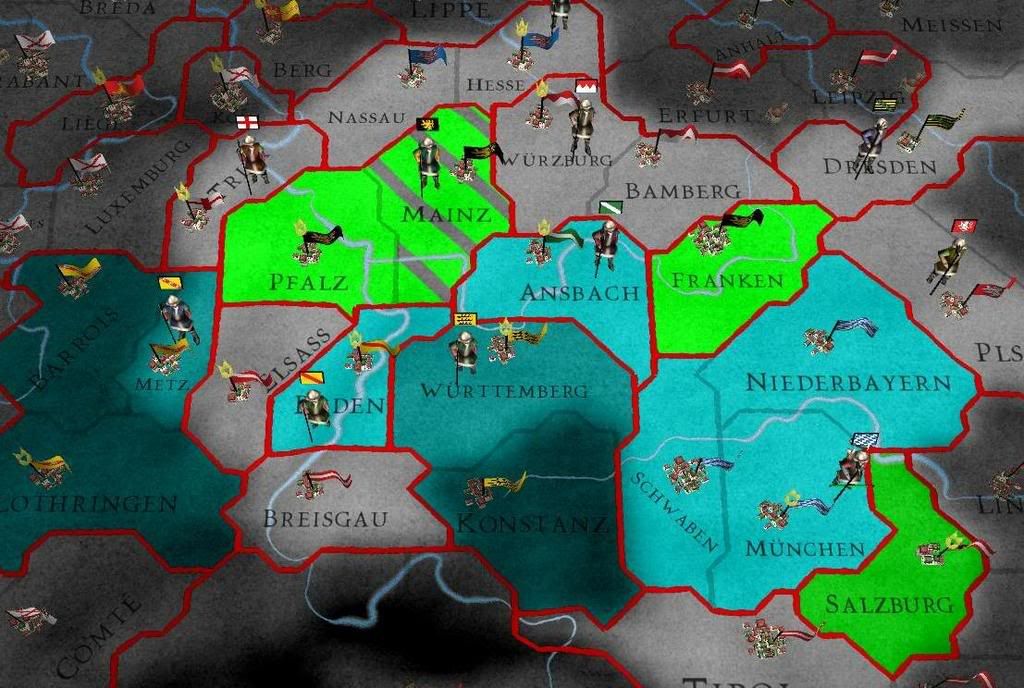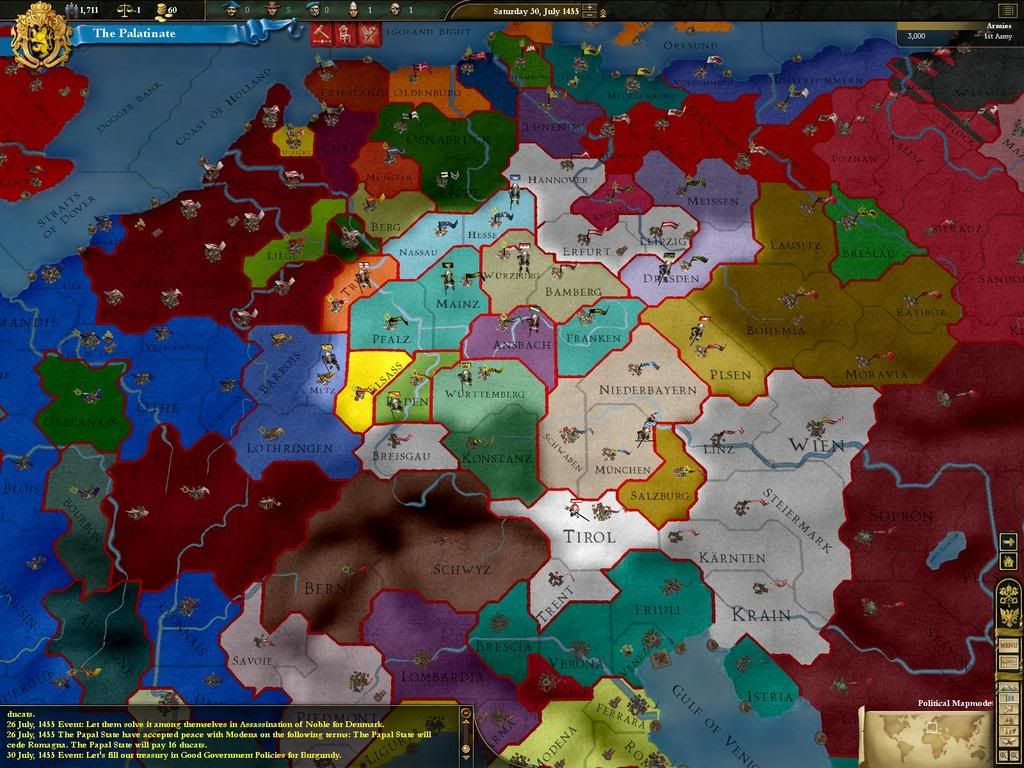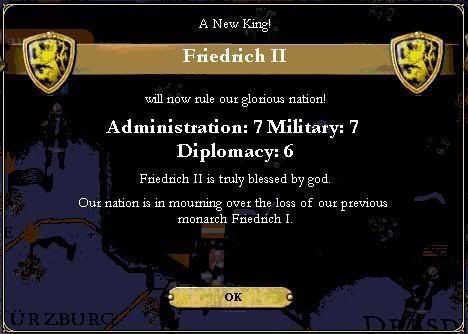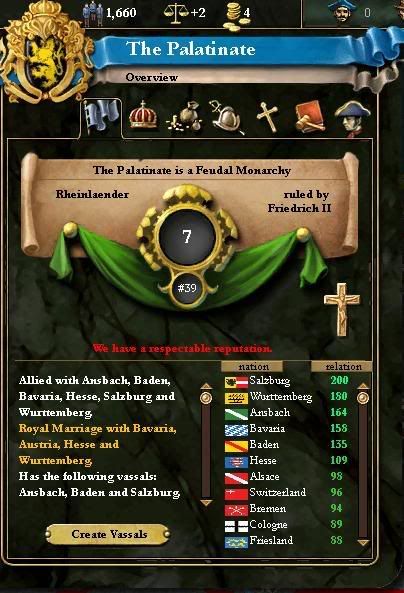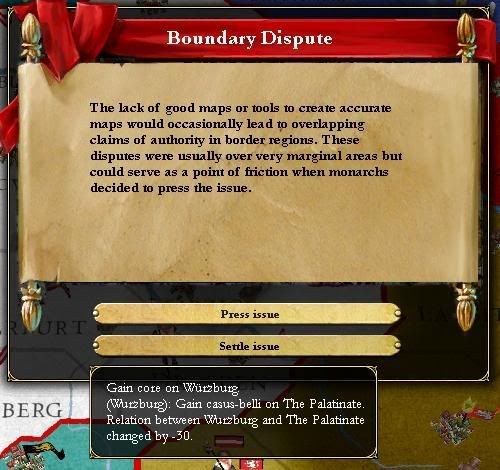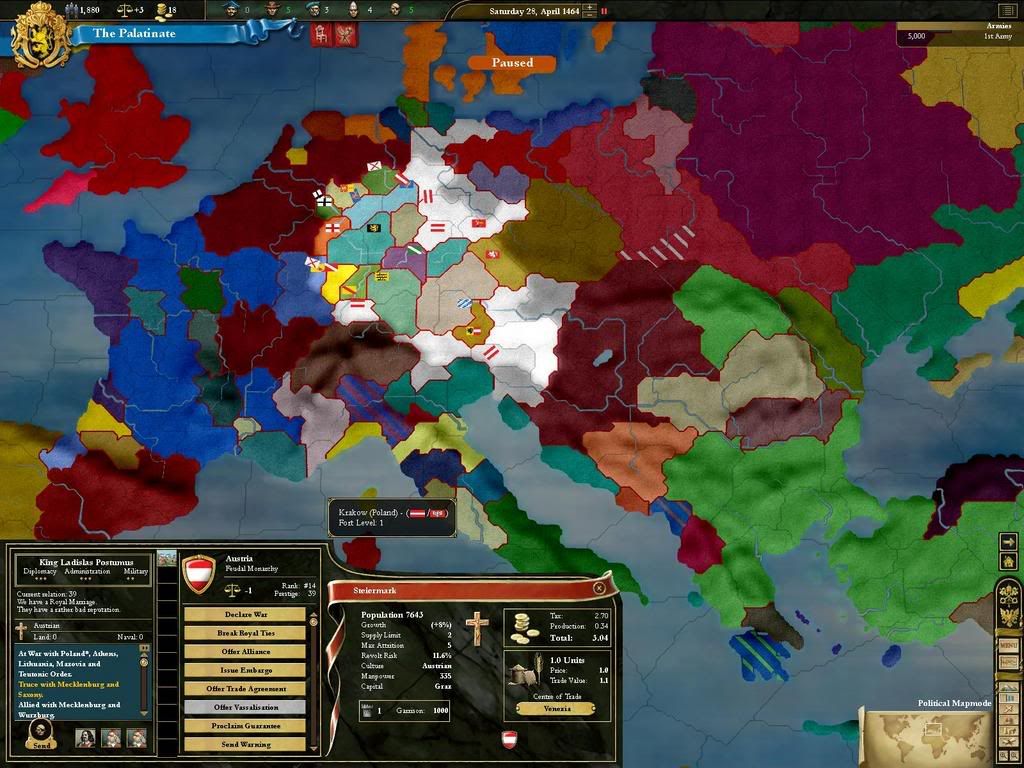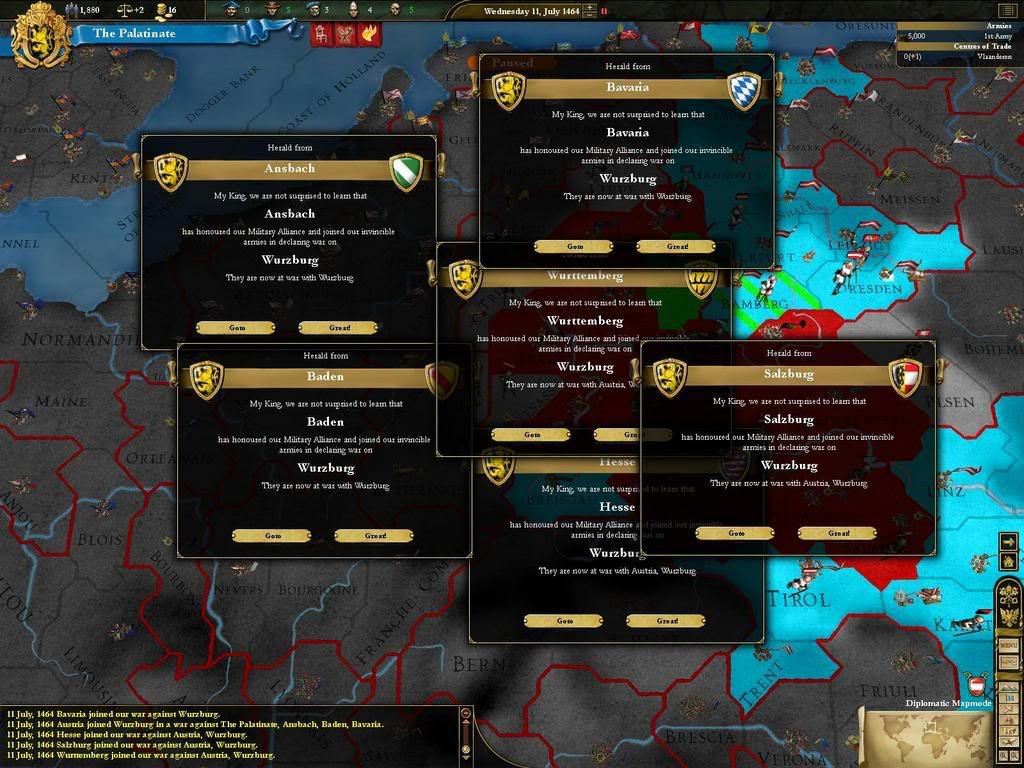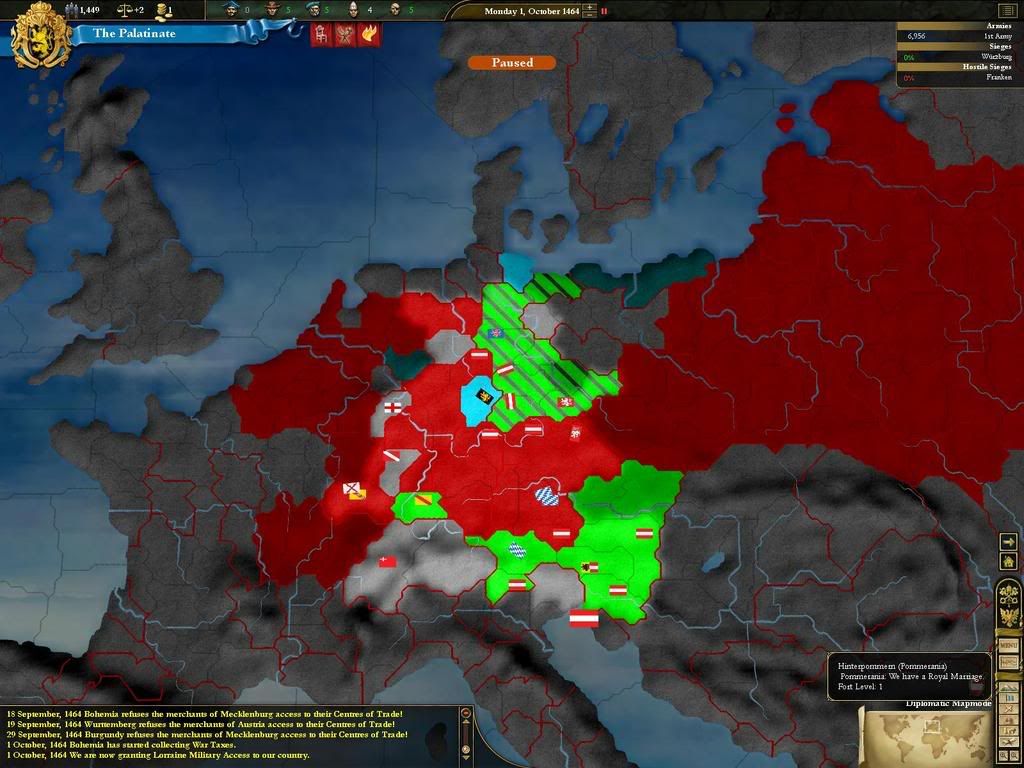Elector Palatine - a Pfalz AAR
This will be my first serious attempt at a EU3 game – and my first AAR attempt ever. I enjoyed playing “some” EU2 a couple of years ago, but I would not consider myself an expert by a long shot. I am quite aware that taking the destiny of the divided, two province Palatinate into my unexperienced hands might prove a bit too much, but heck, I wanted a challenge. So here we go.
My first goal is to enjoy myself. Surviving as a nation comes second to enjoying and telling a good story. I will not allow myself to reload: what happens, happens.
Other goals – at the same time more concrete and more utopian – might be linking the “lower” and “upper” Palatinate (Pfalz and Franken) or, god willing, the unification of all Germany.
Like others have said before me, I fully intend to take my time with this one, as most of my play time is limited to weekends.

Friedrich's fingers caressed the seal once more. The Golden Bull. In spite of all its noble intentions, it had never really sealed anything. It had not been the end of internal strife on German soil. Almost a century had passed, but the Empire remained as divided as ever. The world would never be rid of ambitious politicians, Friedrich knew.
He knew all too well. His very name spoke of ambition. Friedrich. It was widely know that the first hereditary Count Palatine of the Rhine, Conrad of Hohenstaufen, had been the younger brother of Frederick Barbarossa. And it had been Charles IV himself, the Holy Roman Emperor, who had explicitly named the ruler of the Palatinate as one of the seven prince-electors at Nuremberg.
So here he was. Friedrich, Elector Palatine, Kurfürst von der Pfalz, but still the ruler of a minor nation in a divided Reich, surrounded by antagonists. A new bull had to rear its head. A bull indeed that could carry away Europa...
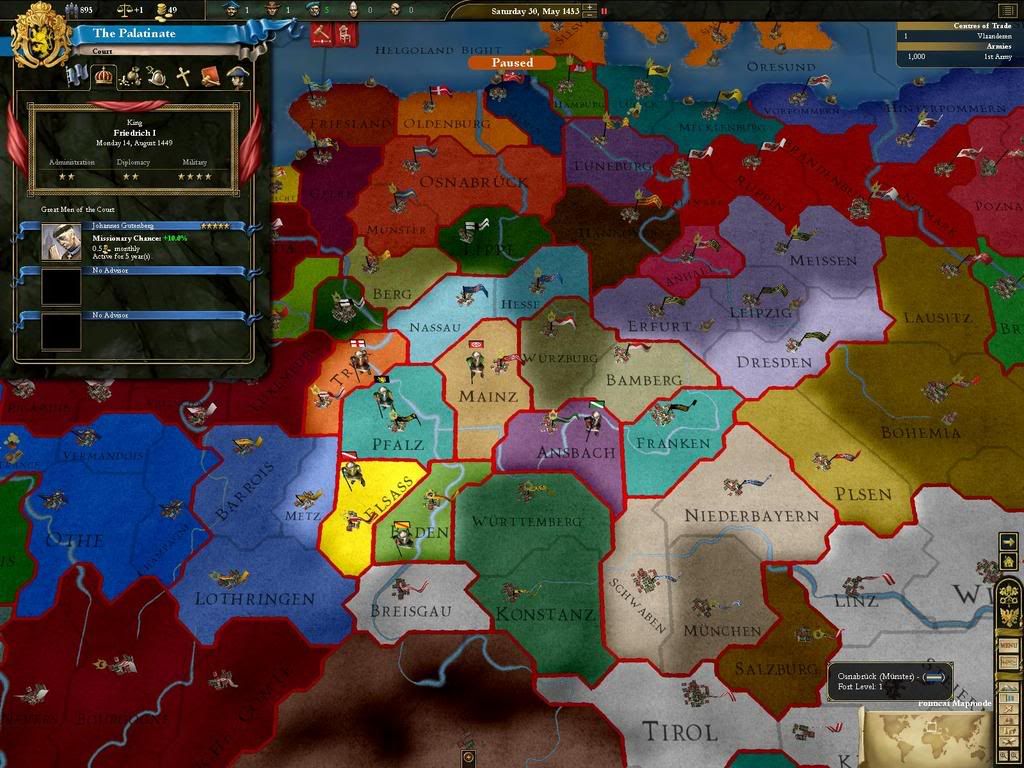
Friedrich stared at the map. Mainz. In public, the archbishop remained as friendly and charming as ever, being courteous to every diplomat he had sent. But Friedrich knew better. One may smile and smile and be a villain. Behind the scenes, the archbishop had supported the Austrian Emperor in his attempt to displace Friedrich by his young nephew Philip. So now the good bishop had to go. But how? Friedrich did not want to spoil everything by rushing head over heels into a war. Mainz could not be gained without the use of steel, Friedrich knew, but he had no claim whatsoever on the land.
The stage is set. Mainz will have to be taken by force soon. Diplomacy should be the key in the long run, however, since too much warmongering will bring down my enemies en masse. Help or suggestions are more than welcome, good readers. God knows I will need them.
ELECTOR PALATINE
Intentions and goals
This will be my first serious attempt at a EU3 game – and my first AAR attempt ever. I enjoyed playing “some” EU2 a couple of years ago, but I would not consider myself an expert by a long shot. I am quite aware that taking the destiny of the divided, two province Palatinate into my unexperienced hands might prove a bit too much, but heck, I wanted a challenge. So here we go.
My first goal is to enjoy myself. Surviving as a nation comes second to enjoying and telling a good story. I will not allow myself to reload: what happens, happens.
Other goals – at the same time more concrete and more utopian – might be linking the “lower” and “upper” Palatinate (Pfalz and Franken) or, god willing, the unification of all Germany.
Like others have said before me, I fully intend to take my time with this one, as most of my play time is limited to weekends.
Prologue: Frederick and the Bull

Friedrich's fingers caressed the seal once more. The Golden Bull. In spite of all its noble intentions, it had never really sealed anything. It had not been the end of internal strife on German soil. Almost a century had passed, but the Empire remained as divided as ever. The world would never be rid of ambitious politicians, Friedrich knew.
He knew all too well. His very name spoke of ambition. Friedrich. It was widely know that the first hereditary Count Palatine of the Rhine, Conrad of Hohenstaufen, had been the younger brother of Frederick Barbarossa. And it had been Charles IV himself, the Holy Roman Emperor, who had explicitly named the ruler of the Palatinate as one of the seven prince-electors at Nuremberg.
So here he was. Friedrich, Elector Palatine, Kurfürst von der Pfalz, but still the ruler of a minor nation in a divided Reich, surrounded by antagonists. A new bull had to rear its head. A bull indeed that could carry away Europa...

Friedrich stared at the map. Mainz. In public, the archbishop remained as friendly and charming as ever, being courteous to every diplomat he had sent. But Friedrich knew better. One may smile and smile and be a villain. Behind the scenes, the archbishop had supported the Austrian Emperor in his attempt to displace Friedrich by his young nephew Philip. So now the good bishop had to go. But how? Friedrich did not want to spoil everything by rushing head over heels into a war. Mainz could not be gained without the use of steel, Friedrich knew, but he had no claim whatsoever on the land.
The stage is set. Mainz will have to be taken by force soon. Diplomacy should be the key in the long run, however, since too much warmongering will bring down my enemies en masse. Help or suggestions are more than welcome, good readers. God knows I will need them.
Last edited:


